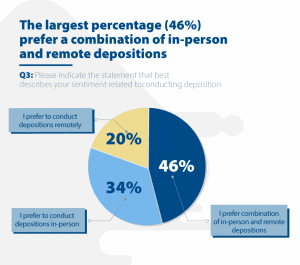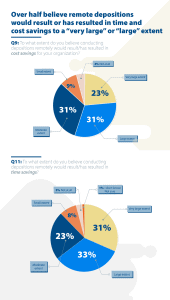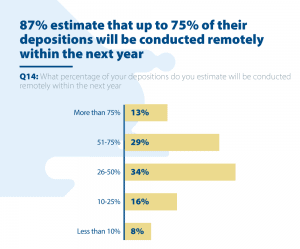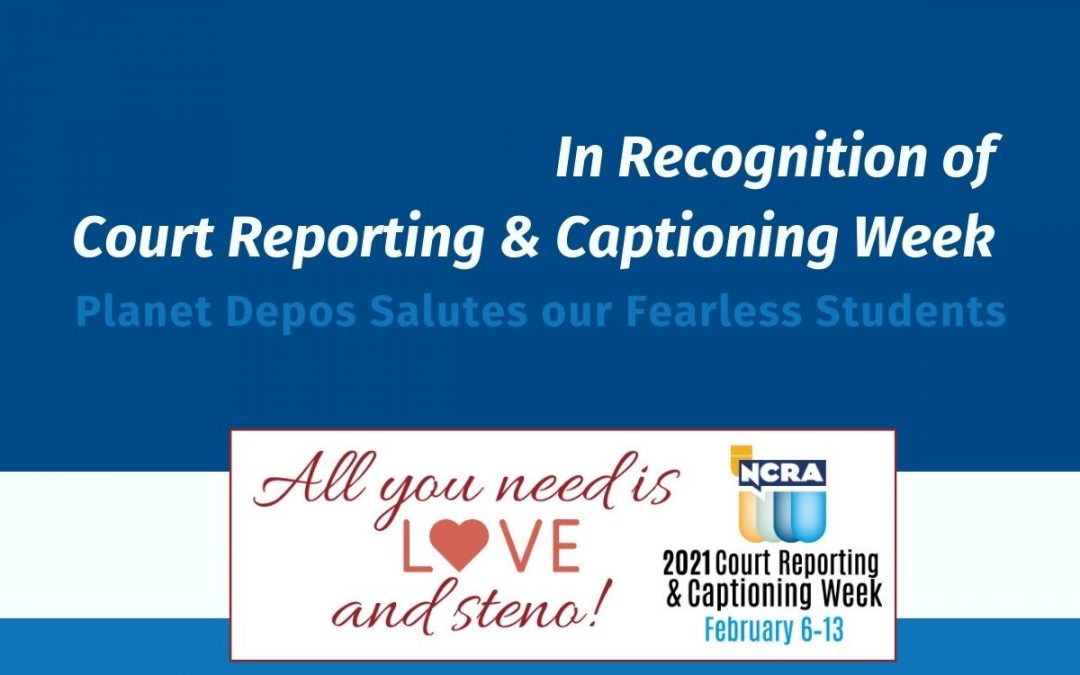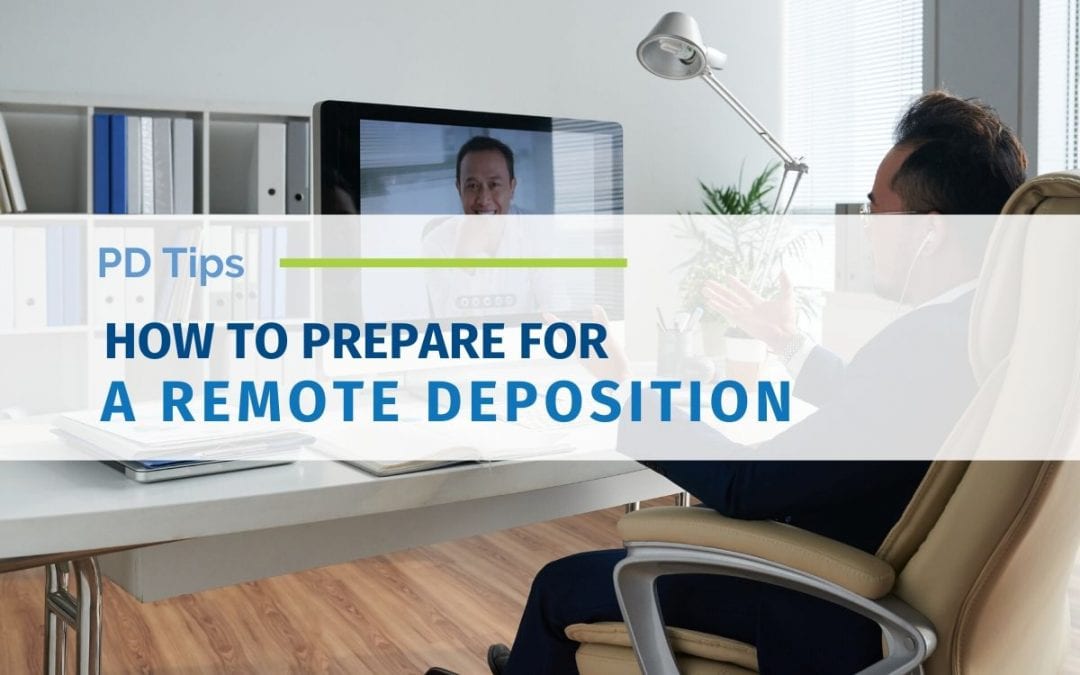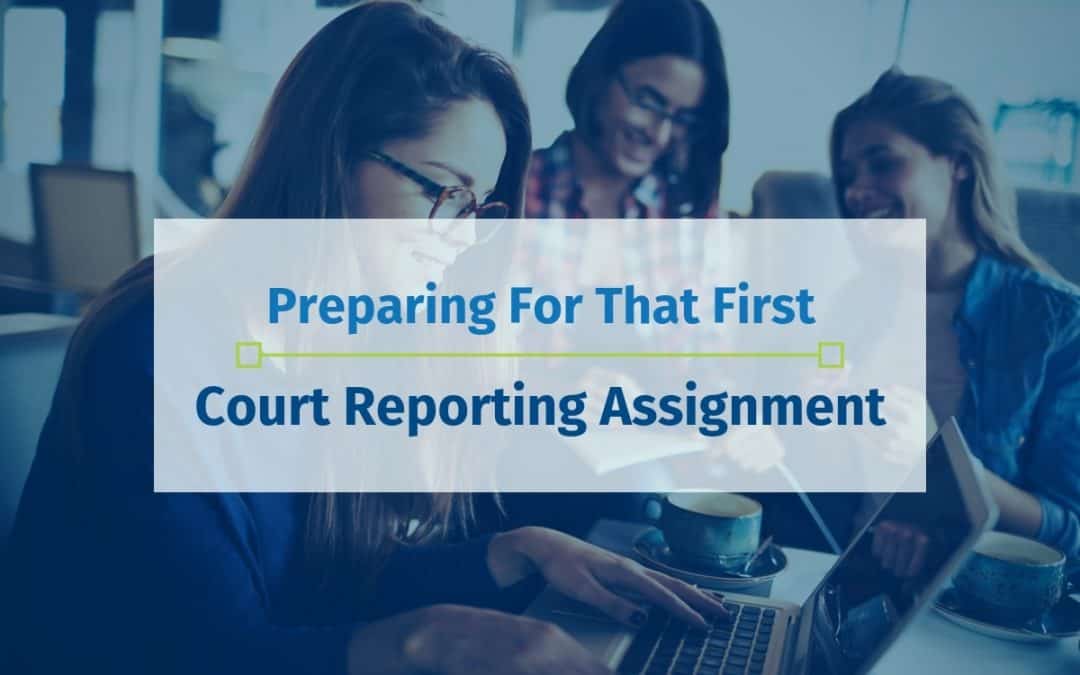Customer service can make or break a relationship with a vendor. No matter how good the product, if the service is sub-par, it makes each interaction with that company a miserable experience you do not want to repeat. For a busy paralegal managing a myriad of details in a jam-packed schedule of high-profile cases, a court reporting agency with superior customer service throughout the case is critical. Frankly, you should never settle for poor customer service. In fact, even mediocre customer service should not be the norm. White glove service does exist, and when you find it, you will never again settle for less. Here are five signs you have found this top tier service.
The First Sign – The Consummate Professional. Let’s say you call to schedule a deposition in a big case, with lots of exhibits, realtime, expedites, and the like. You hope the scheduling coordinator sounds interested in what you have to say and confident they can help you with all the moving parts your case entails. You want a person who listens to what you require for the deposition, asks intelligent, pertinent questions to clarify those needs, and sounds like a together, organized individual who takes his or her job seriously. You want someone like you! You deserve that.
The Second Sign – Like Patience on a Monument. Litigation can be a whirlwind of change. Schedules change often. Exhibits get switched out at the last minute, necessitating rapid downloads of voluminous exhibits, frequently sensitive documents at that, to be gotten to the technician for handling/marking in the deposition. Patience is a virtue everyone in your court reporting agency must practice every minute they are working. You see that patience reflected in their ability to be flexible, cancelling and rescheduling depositions seamlessly and cheerfully. You see it any time a standing order must be modified. You’ll be reminded just how professional they are! They have seen it all, and they get it and can roll with it.
The Third Sign – White glove service means you always come first. You are the priority. The world revolves around you and your case. Your relationship is highly valued. You get the idea. This company has a “people first” attitude. When you call, they listen. They understand what you need because they hear what you’re saying, and they’re professionals as we’ve already established. They will ask questions to better understand any sensitive requests, for example, a highly confidential matter or particularly cost-conscious client. They will demonstrate creativity to accommodate special requests, as they are not bogged down by procedure and can focus on making it happen for you, their valued client. There is no problem, potential or real, that when you present it to them, they don’t have or won’t find a working solution.
The Fourth Sign – A sense of urgency. This one is simple, but crucial. White glove service is possible only if your court reporting agency possesses a sense of urgency. It’s important to your case? It’s critical to them. Vital information is communicated to your team so that no details or schedule switches are missed, and everyone is on time and prepared for the proceeding. This sense of urgency is demonstrated by everyone with whom you interact, from your account executive to the scheduling coordinator(s), reporter(s), all the way to billing. This also serves as another reminder of that professionalism, to say nothing of efficiency.
The Fifth Sign – They Consistently Deliver. Customer service counts for nothing if, at the end of the day, you are not satisfied with the results delivered to you. Can you rely on the agency to come through every time? Roughs must be timely and clean, expedites must be prompt, exhibits handled flawlessly no matter how numerous and voluminous. Legal video must be usable, synced to the transcript if requested, and delivered when promised or sooner. The white glove court reporting agency delivers confidence. They earn your trust as you become secure in their ability to listen to and understand your requirements and concerns, communicate those to the team, and deliver what you need, even consistently surpassing your expectations. White glove service doesn’t just make you happy. It gets you results! The people who provide you with the gold standard customer service are the people who make it happen.
The quality of customer service speaks volumes about an agency. Not every agency is equipped to provide the gold standard. For example, the company that is not stuck on rigid policies and procedures allows your representative to think outside the box and come up with a creative solution to impress you and get the job done! An emphasis on teamwork keeps everything on schedule, with your case management team supporting each other around the clock. Similarly, when all departments routinely and seamlessly communicate with one another, they keep the process moving and organized so you meet your deadlines, supplied with everything you need from your court reporting agency.
Planet Depos has been providing white glove service for over a decade, going the extra mile time and again to continually make it happen for their clients. This dedication to service, coupled with their advanced technological skill, has set them apart in court reporting, particularly during the challenges of 2020. To experience white glove service for yourself, contact schedulenow@planetdepos.com, or schedule online.




